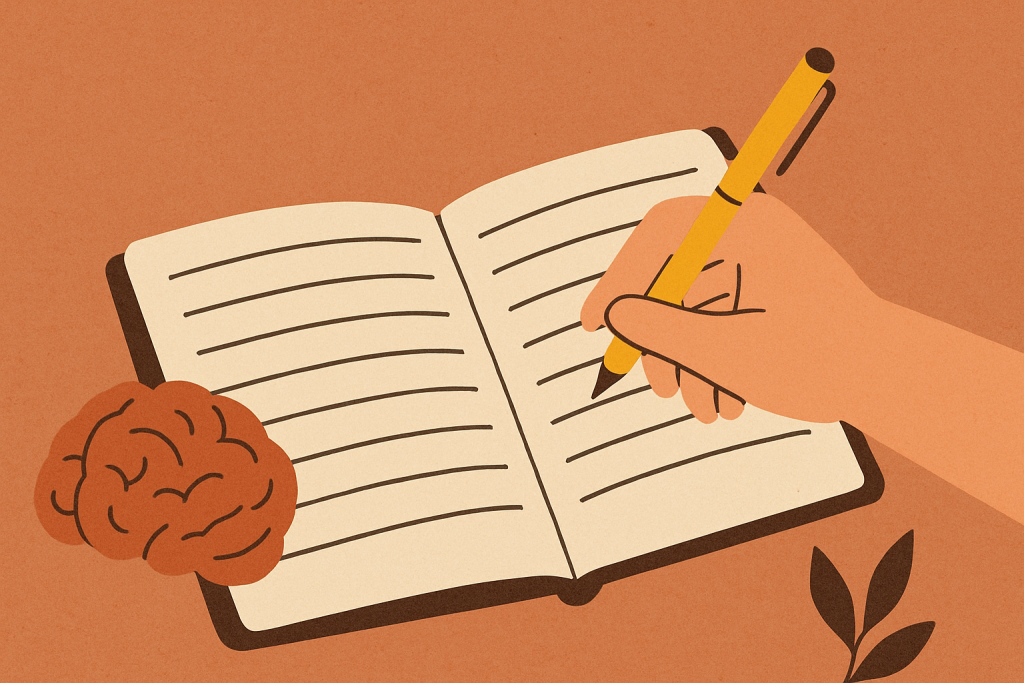
In a world that never stops moving, our minds often struggle to keep up. Between work stress, personal challenges, social pressure, and constant digital noise, it’s no wonder that mental health concerns have become a global issue. While therapy, medication, and self-care are crucial pillars of mental well-being, there’s one powerful, underrated practice that’s surprisingly simple—and that’s journaling.
You don’t have to be a writer, a poet, or a philosopher. All you need is a pen, paper, and a few honest minutes with yourself. In this article, we’ll explore how mental health journaling can become one of the most rewarding tools in your emotional wellness toolkit.
Why Journaling Works: The Science Behind the Pen
Journaling isn’t just a feel-good habit—it’s backed by research. Studies show that expressive writing helps reduce anxiety, improve mood, boost memory, and even strengthen the immune system. But how?
1. It Organizes Your Thoughts
Have you ever felt mentally overwhelmed but couldn’t pinpoint why? That’s where journaling shines. Putting your thoughts into words forces your brain to organize the chaos, making emotional experiences more manageable.
2. It Helps You Process Emotions
Instead of suppressing your feelings (which often leads to long-term distress), journaling allows you to express and release them safely. It’s like talking to a therapist, except the therapist is your own inner voice.
3. It Increases Self-Awareness
The more you journal, the better you understand yourself. You begin to notice patterns—like how certain people or habits affect your mood. This awareness empowers you to make healthier choices.
The Mental Health Benefits of Journaling
Let’s break down exactly how mental health journaling improves your overall well-being:
✅ Reduces Stress and Anxiety
Stress is a natural part of life, but when it builds up unchecked, it can take a toll on both your body and mind. Journaling acts like a pressure valve—when you write out your worries, fears, or frustrations, it creates a sense of release.
💭 “Journaling gives me permission to stop carrying everything in my head. It’s where my mind takes a breath.” — Anonymous journaler
Even just 10-15 minutes a day of writing about stressful experiences has been shown to reduce cortisol levels (the stress hormone).
✅ Improves Mood and Emotional Regulation
Bad days happen. But journaling helps you put those days into perspective. Over time, it trains your brain to recognize, label, and regulate emotions more effectively. Instead of being consumed by anger, sadness, or jealousy, you start to observe them with curiosity and compassion.
Follow our social media to get an daily update!
✅ Strengthens Gratitude and Positivity
Gratitude journaling is one of the most effective ways to shift your mindset. By writing down 3-5 things you’re grateful for each day, you begin to focus less on what’s wrong and more on what’s going well. It’s a subtle but powerful shift that can dramatically improve your outlook.
✅ Supports Goal Setting and Progress Tracking
Mental health isn’t just about surviving—it’s about thriving. Journaling helps you set personal goals, track your progress, and reflect on growth. Whether it’s managing depression, building self-esteem, or recovering from burnout, seeing your journey unfold on paper is incredibly motivating.
✅ Enhances Mindfulness and Presence
Journaling pulls you out of autopilot. It anchors you in the moment. As you write, you slow down and tune in—something that’s often missing in our fast-paced lives. This mindfulness strengthens your ability to stay grounded, even in difficult moments.
How to Start a Mental Health Journaling Practice
You don’t need fancy notebooks or hours of free time. The key is consistency over perfection. Here’s how to start:
🌀 Step 1: Choose Your Tools
Some people love the tactile feel of pen and paper; others prefer digital journaling. Pick whatever feels most natural to you.
Paper journals: Great for disconnecting from screens and feeling more “present.”
Apps or digital docs: Perfect for convenience, searchability, and privacy.
🌀 Step 2: Set a Time and Place
Make journaling part of your routine. It could be:
- First thing in the morning to set your intentions
- Midday as a mental check-in
- Before bed to reflect on the day
Even 5–10 minutes is enough to make an impact.
🌀 Step 3: Use Prompts (If Needed)
Staring at a blank page can feel intimidating. That’s where prompts help. Try these:
- What’s been weighing on my mind lately?
- What emotion am I feeling right now? Why?
- What’s one thing I’m proud of today?
- What would I say to my younger self?
- What do I need more of in my life?
🌀 Step 4: Let Go of Judgment
This is your space. There are no rules. Don’t worry about grammar, spelling, or structure. You’re not writing for an audience—you’re writing for healing.
Different Styles of Mental Health Journaling
Everyone journals differently. Experiment until you find a style that works for you:
📓 Stream-of-Consciousness
Also known as “brain dump” journaling, this style involves writing down whatever comes to mind without filters. It’s great for releasing mental clutter.
📓 Gratitude Journaling
Each day, list a few things you’re grateful for. These can be big (a supportive friend) or small (a hot cup of tea). The goal is to train your brain to notice the good.
📓 Mood Tracking
Record your mood throughout the day or at the end of each day. Use emojis, a number scale, or short descriptions. Over time, you’ll start to identify emotional triggers and patterns.
📓 Letters You Don’t Send
Write letters to people (or even to yourself) that you never intend to send. It’s incredibly cathartic and helps you process emotions like anger, grief, or unresolved feelings.
📓 Goal-Focused Journaling
Use journaling to set mental health goals and track progress. For example, “This week I’ll practice self-compassion,” then reflect on how it went each day.
Common Myths About Journaling—Debunked
Let’s clear up a few misconceptions:
❌ “I don’t have time.”
Truth: Journaling doesn’t have to take an hour. Even just five minutes a day can make a real difference.
❌ “I’m not good at writing.”
Truth: You don’t need to be. There are no grades, no readers, and no expectations. It’s not about perfect sentences—it’s about honest reflection.
❌ “It’s too emotional.”
Truth: Yes, journaling can stir up deep feelings—but that’s exactly why it helps. Processing emotions, even the tough ones, leads to long-term healing.
Real People, Real Results
Here’s what others have experienced through mental health journaling:
🗣️ “Journaling helped me get through my depression. I didn’t realize how much I was holding in until I started writing every night.” – Leah, 32
🗣️ “I use journaling to manage anxiety. It helps me slow down, unpack my fears, and remind myself of what I can control.” – David, 28
🗣️ “As someone in recovery from trauma, journaling has been my safe space. It’s where I process everything without fear of judgment.” – Rosa, 41
Final Thoughts: Journaling Is a Gift You Give Yourself
In a society that encourages constant productivity, journaling asks you to pause. To reflect. To feel. It’s one of the most gentle, effective, and accessible mental health tools available—no prescription needed.
The best part? Journaling meets you exactly where you are. Whether you’re in crisis or simply seeking more self-awareness, the blank page is always ready to listen.
So pick up your pen. Open that notebook. Start small. And remember: the more you write, the more you’ll discover just how powerful your thoughts—and your healing—can be.



